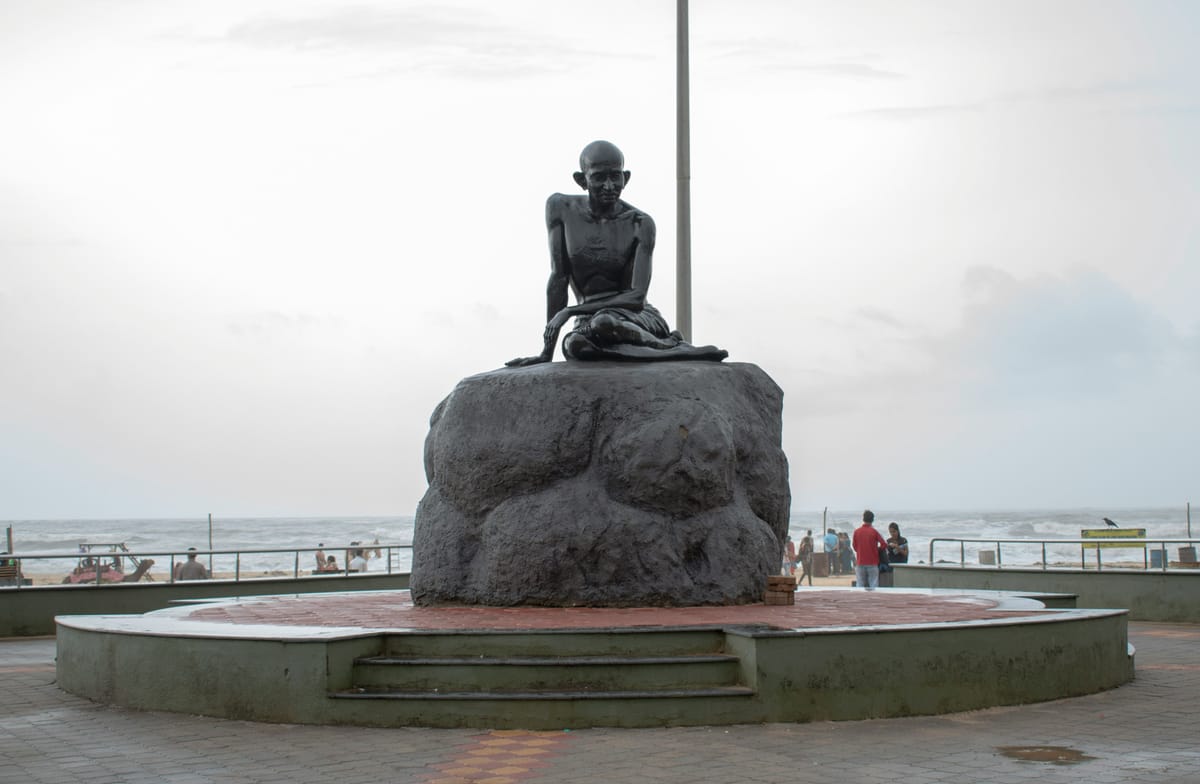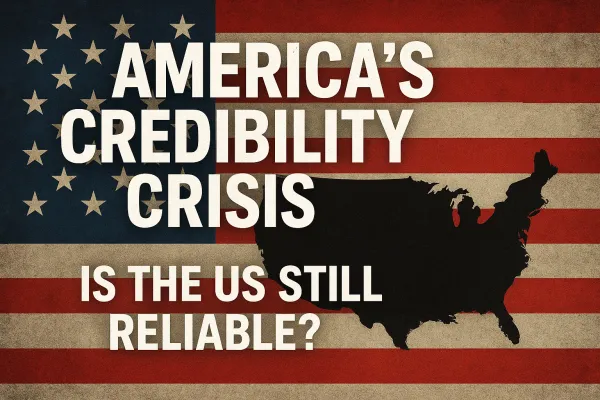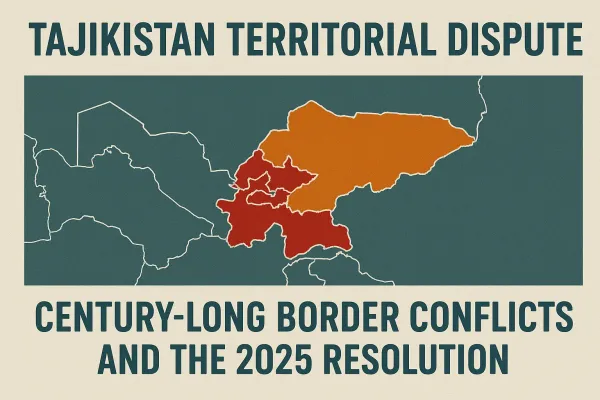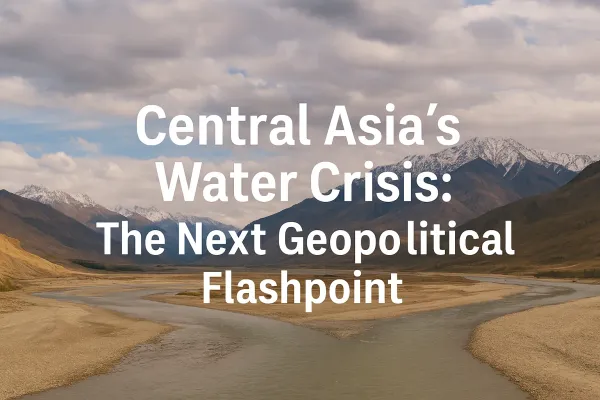Gandhi Jayanti 2025: Reflections on Democracy, Leadership, and Global Influence
On Gandhi Jayanti 2025, we reflect on Mahatma Gandhi’s philosophy of non-violence, ethical leadership, and civic responsibility, and how it inspires us today.

Every year on 2nd October, India celebrates Gandhi Jayanti, honoring the birth of Mahatma Gandhi, one of the most influential figures in modern history. While Gandhi is intrinsically linked to India’s independence, his philosophy of non-violence, ethical leadership, and civic responsibility extends far beyond national boundaries. Gandhi’s ideas continue to resonate globally, offering timeless lessons for democracy, governance, and leadership in today’s complex world.
Gandhi’s Early Life and Formative Years
Mahatma Gandhi was born in 1869 in Porbandar, India. From childhood, he displayed a strong sense of morality, discipline, and empathy. Gandhi’s formative years included studying law in London and later practicing in South Africa, where he faced racial discrimination. These experiences profoundly shaped his worldview, teaching him that justice, resilience, and ethical principles can drive meaningful change.
Gandhi’s early exposure to social inequalities helped him understand that true leadership combines personal integrity with public responsibility. This foundation became critical when he returned to India and led movements that transformed the nation’s political landscape.
Non-Violence and Civil Disobedience as Political Tools
Gandhi’s approach to political activism was revolutionary—not merely because of the movements he led, but because of the principles behind them. His doctrines of Ahimsa (non-violence) and Satyagraha (truthful resistance) empowered people to challenge injustice without resorting to aggression.
Some of Gandhi’s most notable campaigns include:
- Champaran Satyagraha (1917): Advocated for the rights of indigo farmers exploited by colonial landlords.
- Non-Cooperation Movement (1920–1922): Encouraged Indians to withdraw from British institutions, boycott foreign goods, and promote self-reliance, uniting the nation in peaceful resistance.
- Salt March (1930): A 240-mile march protesting the British salt tax, uniting millions in peaceful civil disobedience.
- Quit India Movement (1942): Mobilized mass resistance against British rule, emphasizing discipline and non-violence.
Globally, leaders such as Martin Luther King Jr., Nelson Mandela, and Aung San Suu Kyi drew inspiration from Gandhi’s philosophy. They demonstrated that ethical, non-violent strategies could confront injustice effectively. Even today, grassroots movements worldwide—whether in climate activism, human rights campaigns, or political reforms—echo Gandhi’s principles.
Democracy and Civic Responsibility
For Gandhi, democracy was not merely about voting—it was about active participation, ethical accountability, and dialogue. He emphasized that citizens must engage in community welfare, social justice, and education, ensuring governance serves the people effectively.
Modern democracies face challenges like political polarization, misinformation, and voter apathy. Gandhi’s teachings encourage citizens to question policies critically, promote dialogue, and participate actively, ensuring democratic institutions are robust and inclusive. His vision of democracy was one where ethics, civic responsibility, and public service intersect.
Ethical Leadership: Lessons for the Modern World
Gandhi’s life provides timeless lessons for leadership:
- Empathy and Understanding: Leaders must consider the welfare of all stakeholders.
- Moral Consistency: Upholding principles even under pressure builds credibility.
- Non-Coercive Influence: True authority comes from persuasion and ethical integrity.
- Vision for the Greater Good: Leadership is about long-term societal impact, not personal gain.
These qualities are as relevant for political leaders, corporate executives, and global diplomats today. Ethical leadership builds trust, encourages collaboration, and fosters societies where governance serves collective welfare.
Global Relevance in 2025
Though Gandhi’s context was colonial India, his philosophy has universal relevance. Nations grappling with social unrest, political division, or governance challenges can benefit from non-violent strategies, inclusive leadership, and civic engagement.
For instance, modern social movements—from climate activism to social justice campaigns—reflect Gandhi’s principles. They show that mobilizing communities through peaceful advocacy can create lasting change, influencing policymakers, governments, and the public. Gandhi’s teachings remind global citizens that progress is achievable without resorting to violence, even in turbulent times.
Quotes and Reflections
Gandhi’s own words continue to inspire:
- “Be the change that you wish to see in the world.”
- “The best way to find yourself is to lose yourself in the service of others.”
- “An eye for an eye will only make the whole world blind.”
These quotes are not just inspirational—they offer a framework for action. They encourage individuals to adopt ethical choices, engage in civic responsibilities, and lead by example.
Practical Lessons for Individuals and Communities
Gandhi Jayanti is not only a day of celebration—it is a reminder of personal responsibility in shaping society. Individuals can apply Gandhi’s teachings in daily life by:
- Staying informed about local and global politics.
- Engaging in community initiatives and civic activities.
- Practicing ethical decision-making in personal and professional life.
- Promoting non-violent solutions in conflicts, both online and offline.
Even small actions, when guided by principles, can have a ripple effect, influencing families, communities, and society at large.
Conclusion: Gandhi’s Legacy Today
As we mark Gandhi Jayanti 2025, it is worth reflecting on how Gandhi’s philosophy applies to today’s world. From promoting transparency and democratic participation to advocating non-violence and ethical leadership, his teachings remain relevant across continents and cultures.
At PoliticArc, we strive to provide insights into global and local politics, democracy, and governance, encouraging thoughtful engagement and action. Gandhi’s life reminds us that ethical leadership and civic responsibility are not just ideals—they are actionable principles that can shape a fairer and more humane world.
By integrating these lessons into our daily lives, readers can navigate political, social, and personal challenges more thoughtfully, contributing to societies grounded in justice, equity, and ethical governance. Gandhi’s philosophy continues to be a guiding light for those seeking meaningful change, proving that principles and ethics are timeless tools for leadership and progress.
Loved this article?
Visit our main page for more insights and subscribe for updates!





